Festivals
Festivals are cultural, religious, or social events that are celebrated by communities, groups, or societies to mark specific occasions, commemorate historical or religious events, or simply to bring people together for fun and entertainment. Festivals vary widely in their nature, purpose, and traditions, and they can be found in virtually every culture around the world. Here are some common types of festivals:
Religious Festivals: These festivals are observed by religious communities to commemorate significant events or figures in their faith. Examples include Christmas for Christians, Eid for Muslims, Diwali for Hindus, and Hanukkah for Jews.
Cultural Festivals: Cultural festivals celebrate the heritage, traditions, and arts of a particular culture or ethnic group. Examples include Chinese New Year, Oktoberfest in Germany, and Mardi Gras in New Orleans.
Music Festivals: These festivals focus on music performances and often feature multiple artists or bands across various genres. Examples include Coachella in the United States, Glastonbury in the UK, and Tomorrowland in Belgium.
Film Festivals: Film festivals showcase films from various genres and origins, allowing filmmakers to present their work to a wider audience. Examples include the Cannes Film Festival, Sundance Film Festival, and Toronto International Film Festival (TIFF).
Food Festivals: These festivals celebrate the culinary traditions of a region or culture. They often feature food tastings, cooking demonstrations, and competitions. Examples include the Taste of Chicago and the San Francisco Street Food Festival.
Seasonal Festivals: Many festivals are tied to the changing of seasons, such as the Spring Festival in China, Carnival in Brazil, and Thanksgiving in the United States.
Art Festivals: These festivals focus on visual arts, such as painting, sculpture, and crafts. They often provide a platform for local artists to showcase their work. Examples include Art Basel in Miami and the Venice Biennale.
Historical and Commemorative Festivals: These festivals commemorate historical events, figures, or milestones. For example, Independence Day celebrations in various countries mark their independence from colonial rule.
Sporting Events and Tournaments: While not always considered traditional festivals, major sporting events like the Olympics, FIFA World Cup, and Super Bowl are celebrated by millions of people worldwide.
Environmental and Green Festivals: These festivals promote environmental awareness and sustainability practices. Examples include Earth Day celebrations and green expos.
Festivals typically involve various activities, including music, dance, parades, rituals, food, and the exchange of gifts or offerings. They often serve as a means of preserving cultural traditions, fostering a sense of community, and promoting tourism. Different festivals have their own unique customs and significance, making them an important part of the world’s cultural tapestry.
Important Festivals of India
Festivals of India have a very Huge list. The culturally rich land of India has various festivals on its soil. Because their essences are so unique, experiencing each of them is like living a hundred lifetimes in one. Nonetheless, these celebrations highlight India’s beauty.
India is a country that is divided by religions but united by festivals. Every festival is celebrated by people belonging to different religions. Diwali is such a festival that is celebrated in the whole country, even some Muslims celebrate Diwali. In this article, we will discuss the different festivals of India. Stay tuned and read the entire article to know the Festivals of India and their importance.
How many festivals are there in India?
India is a big country with many religions, resulting in a distinct local festival culture. Throughout the year, India is claimed to host over a thousand festivals. Every festival in India is greeted with great fanfare and, at times, cultural harmony. Diwali, the next major national celebration, will take place in November. Indian festivals are broadly classified into five types: Diwali and Holi are festivals that celebrate the triumph of good over evil. Seasonal festivals such as Onam in Kerala, Makar Sankranti in the north, and Pongal in the south commemorate new beginnings and harvest seasons. Gods’ and renowned people’s birthdays or anniversaries, such as Krishna Janmashtami, Mahashivratri, and Ganesh Chaturthi. Raksha Bandhan and Karwa Chauth are occasions for couples or siblings to celebrate their bond. Every year, national holidays such as Republic Day on January 26 and Independence Day on August 15 are observed with considerable patriotic zeal.
Top 10 Festival Names
India is a diverse country with a rich cultural heritage, and it celebrates a wide variety of festivals throughout the year. Here are some of the major festivals celebrated in India:
Diwali: Also known as Deepavali, it’s the Festival of Lights and is one of the most widely celebrated festivals in India. It usually falls in October or November.
Holi: The festival of colors, typically celebrated in March, marks the arrival of spring.
Eid: Eid-ul-Fitr and Eid-ul-Adha are two major Islamic festivals celebrated with great enthusiasm.
Christmas: Celebrated by Christians across India on December 25th, it marks the birth of Jesus Christ.
Navratri: A Hindu festival lasting nine nights, dedicated to the worship of the goddess Durga. It typically occurs in September or October.
Durga Puja: Primarily celebrated in West Bengal, it’s a grand celebration of the goddess Durga’s victory over evil.
Ganesh Chaturthi: Celebrated in honor of Lord Ganesha, the elephant-headed god, in August or September.
Easter: Observed by Christians to celebrate the resurrection of Jesus Christ.
Baisakhi: Celebrated in April, primarily in Punjab, to mark the Sikh New Year and the harvest festival.
Raksha Bandhan: A festival celebrating the bond between brothers and sisters, usually in August.
Janmashtami: Marks the birth of Lord Krishna, celebrated with great zeal in August or September.
Pongal: A harvest festival celebrated in South India, typically in January.
Onam: A harvest festival celebrated in Kerala, usually in August or September.
Makar Sankranti: Celebrated in different parts of India with various names, marking the transition of the sun into Capricorn, usually in January.
Lohri: Celebrated in Punjab in January, it marks the winter solstice.
Dussehra: Celebrated to mark the victory of Lord Rama over Ravana, typically in October.
Bihu: A harvest festival celebrated in Assam, typically in April.
Eid-e-Milad: Celebrates the birth of the Islamic prophet Muhammad.
Guru Nanak Jayanti: Celebrates the birth of Guru Nanak, the founder of Sikhism, usually in November.
Maha Shivaratri: A Hindu festival dedicated to Lord Shiva, celebrated in February or March.
Karva Chauth: A fasting ritual observed by married Hindu women for the well-being and longevity of their husbands, typically in October or November.
Lohri: Celebrated in Punjab to mark the winter solstice, usually in January.
Chhath Puja: A festival dedicated to the sun god, typically celebrated in Bihar and other northern regions in October or November.
Gudi Padwa: The Marathi New Year, typically celebrated in March or April.
Vishu: The Malayalam New Year is celebrated in Kerala, typically in April.
Ratha Yatra: A chariot festival associated with Lord Jagannath, celebrated in Puri and other parts of India.
Important Festivals in India 2024
Here are the popular Hindu Festival Holidays
| Date | Day | Holiday |
| 15 January 2024 | Monday | Makar Sankranti or Pongal |
| 26 January 2024 | Friday | Thaipusam |
| 14 February 2024 | Wednesday | Vasant Panchami |
| 8 March 2024 | Friday | Maha Shivaratri |
| 20 March 2024 | Wednesday | Hindi New Year |
| 24 March 2024 | Sunday | Holika Dahan |
| 25 March 2024 | Monday | Holi |
| 9 April 2024 | Tuesday | Ugadi or Gudi Padwa or Telugu New Year |
| 13 April 2024 | Saturday | Vaisakhi or Baisakhi or Vishu |
| 14 April 2024 | Sunday | Tamil New Year |
| 15 April 2024 | Monday | Bengali New Year or Bihu |
| 17 April 2024 | Wednesday | Ramanavami |
| 23 April 2024 | Tuesday | Hanuman Jayanti |
| 10 April 2024 | Friday | Akshaya Tritiya |
| 6 April 2024 | Thursday | Savitri Pooja |
| 7 July 2024 | Sunday | Puri Rath Yatra |
| 21 July 2024 | Sunday | Guru Purnima |
| 9 August 2024 | Friday | Nag Panchami |
| 16 August 2024 | Friday | Varalakshmi Vratam |
| 19 August 2024 | Monday | Raksha Bandhan |
| 26 August 2024 | Monday | Krishna Janmashtami |
| 7 September 2024 | Saturday | Ganesh Chaturthi |
| 16 September 2024 | Monday | Vishwakarma Puja |
| 2 October 2024 | Wednesday | Mahalaya Amavasya |
| 3 October 2024 | Thursday | Navaratri begins |
| 11 October 2024 | Friday | Navaratri ends or Maha Navami |
| 12 October 2024 | Saturday | Dusshera |
| 16 October 2024 | Wednesday | Sharad Purnima |
| 20 October 2024 | Sunday | Karwa Chauthi |
| 29 October 2024 | Tuesday | Dhan Teras |
| 1 November 2024 | Friday | Diwali |
| 3 November 2024 | Sunday | Bhai Dooj |
| 7 November 2024 | Thursday | Chhath Puja |
| 15 November 2024 | Friday | Kartik Poornima |
| 11 December 2024 | Wednesday | Geeta Jayanti |
| 15 December 2024 | Sunday | Dhanu Sankranti |
Festivals of India Chart
Festivals of India Chart is given below. Check here.
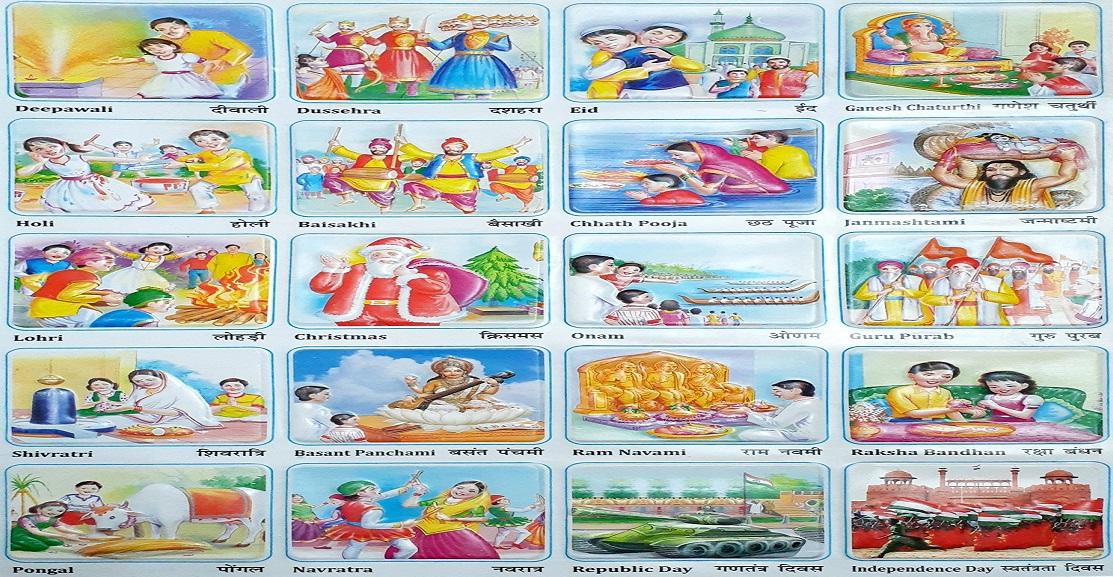
Festivals of India State Wise: Religious & Harvest
| State | List of Indian Festivals |
| Andhra Pradesh | Dasara, Ugadi, Deccan Festival, Brahmotsavam |
| Arunachal Pradesh | Reh, Boori Boot, Myoko, Dree, Pongtu, Losar, Murung, Solang, Mopin, Monpa festival |
| Assam | Ambubachi, Bhogali Bihu, Baishagu, Dehing Patkai |
| Bihar | Chhath Puja, Bihula |
| Chhattisgarh | Maghi Purnima, Bastar Dussehra |
| Goa | Sunburn festival, Ladain, Mando |
| Gujarat | Navratri, Janmashtami, Kutch Utsav, Uttarayana |
| Himachal Pradesh | Rakhadumni, Gochi Festival |
| Haryana | Baisakhi |
| Jammu and Kashmir | Har Navami, Chhari, Bahu Mela, Dosmoche, |
| Jharkhand | Karam Utsav, Holi, Rohini, Tusu |
| Karnataka | Mysore Dasara, Ugadi |
| Kerala | Onam, Vishu |
| Madhya Pradesh | Lok-rang Utsav, Tejaji, Khujaraho festival |
| Meghalaya | Nongkrem festival, Khasis festival, Wangla, Sajibu Cheiraoba |
| Maharashtra | Ganesh Utsav, Gudi Padva |
| Manipur | Yaoshang, Porag, Chavang Kut |
| Mizoram | Chapcharkut Festival |
| Nagaland | Hornbill festival, Moatsu Festival |
| Odisha | Rath Yatra, Raja Parba, Nukahai |
| Punjab | Lohri, Baisakhi |
| Rajasthan | Gangaur, Teej, Bundi |
| Sikkim | Losar, Saga Dawa |
| Tamil Nadu | Pongal, Thaipusam, Natyanjali Festival |
| Telangana | Bonalu, Bathukamma |
| Tripura | Kharchi Puja |
| West Bengal | Durga Puja |
| Uttaranchal | Ganga Dussehra |
| Uttar Pradesh | Ram Navmi, Ganga Mahotsav, Navaratri, Khichdi |
29 States of India and Their Main Festivals List
India is a diverse country with 28 states and 8 union territories. Each state has its own unique culture and festivals. Here’s a list of 29 states and some of their main festivals:
- Andhra Pradesh:
- Ugadi
- Sankranti
- Dasara
- Arunachal Pradesh:
- Losar
- Torgya
- Si-Donyi
- Assam:
- Bihu (Rongali, Bhogali, and Kongali)
- Durga Puja
- Bohag Bihu
- Bihar:
- Chhath Puja
- Durga Puja
- Holi
- Chhattisgarh:
- Bastar Dussehra
- Rajim Kumbh Mela
- Teeja
- Goa:
- Carnival
- Shigmo
- Diwali
- Gujarat:
- Navratri
- Diwali
- Makar Sankranti (Uttarayan)
- Haryana:
- Baisakhi
- Teej
- Diwali
- Himachal Pradesh:
- Kullu Dussehra
- Losar
- Lohri
- Jharkhand:
- Sarhul
- Karma Puja
- Tusu Parab
- Karnataka:
- Dasara
- Ugadi
- Makar Sankranti
- Kerala:
- Onam
- Vishu
- Thrissur Pooram
- Madhya Pradesh:
- Diwali
- Khajuraho Dance Festival
- Gwalior Trade Fair
- Maharashtra:
- Ganesh Chaturthi
- Diwali
- Gudi Padwa
- Manipur:
- Yaoshang (Holi)
- Cheiraoba
- Kang Festival
- Meghalaya:
- Nongkrem Dance Festival
- Shad Suk Mynsiem
- Wangala Festival
- Mizoram:
- Chapchar Kut
- Mim Kut
- Pawl Kut
- Nagaland:
- Hornbill Festival
- Moatsu Festival
- Sekrenyi
- Odisha:
- Rath Yatra
- Durga Puja
- Konark Dance Festival
- Punjab:
- Baisakhi
- Diwali
- Lohri
- Rajasthan:
- Pushkar Camel Fair
- Jaipur Literature Festival
- Gangaur Festival
- Sikkim:
- Losar
- Saga Dawa
- Tihar
- Tamil Nadu:
- Pongal
- Chithirai Festival
- Karthigai Deepam
- Telangana:
- Bathukamma
- Bonalu
- Makar Sankranti
- Tripura:
- Durga Puja
- Kharchi Puja
- Garia Puja
- Uttar Pradesh:
- Diwali
- Holi
- Kumbh Mela
- Uttarakhand:
- Ganga Dussehra
- Magh Mela
- Nanda Devi Raj Jat
- West Bengal:
- Durga Puja
- Kali Puja
- Pohela Boishakh (Bengali New Year)
Union Territories:
- Delhi:
- Diwali
- Holi
- Christmas
- Chandigarh:
- Baisakhi
- Diwali
- Christmas
- Puducherry:
- Pongal
- Bastille Day
- Diwali
- Andaman and Nicobar Islands:
- Island Tourism Festival
- Subhash Mela
- Durga Puja
- Lakshadweep:
- Eid
- Muharram
- Milad-un-Nabi
- Dadra and Nagar Haveli and Daman and Diu:
- Diwali
- Christmas
- Ganesh Chaturthi
- Ladakh:
- Ladakh Festival
- Hemis Festival
- Losar
These are some major festivals celebrated in each state and union territory. There are many more regional and local festivals celebrated across India, showcasing its rich cultural diversity.
Top 10 Important Festivals in India
India is known for its rich cultural heritage and diverse traditions, which are reflected in the numerous festivals celebrated across the country. While there are many festivals in India, here is a list of the top 10 festivals that are widely celebrated:
- Diwali (Deepavali):
- Known as the Festival of Lights, Diwali is one of the most significant Hindu festivals in India. It symbolizes the victory of light over darkness and good over evil. People light oil lamps, burst fireworks, exchange gifts, and decorate their homes during this festival.
- Holi:
- Holi is the festival of colors, celebrated with enthusiasm and joy throughout India. People play with colored powders and water, sing and dance, and enjoy a festive atmosphere.
- Eid-ul-Fitr:
- Eid-ul-Fitr is one of the most important Muslim festivals in India, celebrated with prayers, feasting, and giving of gifts. It marks the end of Ramadan, a month of fasting and prayer.
- Christmas:
- Christmas is celebrated by the Christian community in India with church services, feasts, and the exchange of gifts. Many non-Christians also participate in the festivities.
- Navaratri and Durga Puja:
- Navaratri is a nine-night Hindu festival dedicated to the goddess Durga. In West Bengal, Durga Puja is celebrated with elaborate decorations, cultural events, and processions. It’s a major festival in this region.
- Ganesh Chaturthi:
- This Hindu festival celebrates the birth of Lord Ganesha, the elephant-headed god of wisdom and prosperity. People install Ganesha idols in their homes and communities, and later immerse them in water bodies.
- Eid-ul-Adha (Bakrid):
- Eid-ul-Adha, also known as Bakrid, is another significant Muslim festival in India. It commemorates the willingness of Ibrahim (Abraham) to sacrifice his son as an act of obedience to God. Sacrificial animals are offered, and the meat is distributed among family and the less fortunate.
- Pongal:
- Pongal is a harvest festival celebrated in the southern state of Tamil Nadu. It’s a four-day festival that involves cooking a special dish called Pongal, decorating homes with kolam (rice flour patterns), and worshipping cattle.
- Makar Sankranti:
- Celebrated in various forms across India, Makar Sankranti marks the transition of the sun into the zodiac sign of Capricorn. Kite flying, bonfires, and special foods are common traditions during this festival.
- Onam:
- Onam is a harvest festival celebrated in the southern state of Kerala. It includes traditional dances like Kathakali, boat races, and the preparation of a grand feast called Onasadya.
Festival Names with Details
Some Festivals are explained in details here.
Diwali
This Diwali will fall in October/November. Diwali, also known as Deepavali, is widely celebrated throughout India. Traditionally, it would last for five days. The darkest night is Diwali night, also known as the new moon night, which occurs at the last of the month of Ashvin and the beginning of the month of Kartika. The Diwali festival commemorates Lord Ram’s return to Ayodhya after 14 years in exile. People clean their homes and elegantly decorate them with lights and diyas. They put on new clothes, prepare sweets, and hope for better days.
There are 5 auspicious days we celebrate during Diwali. Below we have given the names of these 5 days with their sequence of occurrence.
- Day 1 – Dhanteras
- Day 2 – Naraka Chaturdashi, Chhoti Diwali
- Day 3 – Lakshmi Puja/Kali Puja
- Day 4 – Govardhan Puja
- Day 5 – Bhai Dooj/Vishwakarma Puja
Holi
Holi is one of India’s most celebrated festivals. This year Holi will be celebrated in March. The “Festival of Colors,” Holi, revolves around the burning and destruction of the demonic Holika. Holi is a prominent Indian festival that commemorates excellent harvests and land fertility. The most enjoyable aspect of this festival is when people play with color powder and use water pistols. This event also commemorates Radha and Krishna’s, eternal love. Holi, India’s colorful festival, is celebrated in a magnificent manner in Mathura and Vrindavan.
Raksha Bandhan
This year Raksha Bandhan will be celebrated in August, Thursday. Rakhsha Bandhan is one of India’s most auspicious celebrations. Raksha means ‘safety’ while Bandhan means ‘connection.’ Raksha Bandhan is a celebration of the adoring and bonding relationship that exists between siblings. Raksha Bandhan has its origins in mythology. It is stated that when Lord Krishna accidentally nicked his finger with his ‘Sudarshan Chakra’ during the Mahabharat, Draupadi tore a piece of her saree and tied it to his finger to stem the bleeding. Lord Krishna was so moved by her generosity and gesture that he pledged to always protect her. Around this day, sisters tie Rakhi, a protection band, on their brother’s hand to assure his safety. In exchange, her brother promises to do the same.
Christmas
Every year on 25th December, people celebrate Christmas. Christmas commemorates the birth of Jesus Christ, whom Christians believe to be the Son of God. It’s a time when loved ones get together to celebrate the positive things in their lives. People, particularly children, enjoy Christmas since it is the occasion for giving and receiving gifts. The term “Christmas” is derived from the Mass of Christ. Mass assistance is a site where Christians remember that Jesus died for them and then rose again. The ‘Christ-Mass’ service was the only one that could take place after sunset, thus it took place at Midnight.
Lohri
Lohri is one of India’s most celebrated festivals. This year Lohri was celebrated on 13th January 2023, Thursday. Lohri is celebrated on the last day of the month of Paush, which is also known as Makar Sankranti in most parts of the world. Lohri signifies the beginning of the harvest season in Punjab as well as the conclusion of the winter season. Lohri, one of India’s most prominent Punjabi festivals, is celebrated by setting a massive bonfire in the yard after the rabi crops have been chopped. Small idols of the Lohri goddess are fashioned and set beneath the blazing fire. People dress in traditional attire and toss sesame seeds, jaggery into the fire.
Festivals of India Essay
There are three major sorts of festivals in India. The national festivals commemorate those moments in time when something extraordinary occurred and altered the path of history for our nation. For instance, Republic Day is observed on January 26. Gandhi Jayanti, or Mahatma Gandhi’s birthday, is observed on October 2.
On August 15, 1947, we celebrate our independence. On this day, the British Empire’s colonial reign over us was officially ended. We honour and commemorate the revolutionaries who sacrificed their lives so that we could be free from the yoke of British rule. The capital of our country, New Delhi, honours Republic Day with valour.
Together, our armed forces put on a show for the public and demonstrate their strength. Everywhere in the nation celebrates these festivals.
The most celebrated religious holidays in our country are Guru Nanak Jayanti, Holi, Diwali, Eid-Ul-Fitr, and Dussehra. Diwali and Dussehra are regarded as India’s two most important religious holidays. The states that participate in these festivals are decked out like newlyweds. The main draws for kids are brand-new, vibrant outfits and delectable foods. People of various ages and socioeconomic levels congregate in one location at this time of year to worship the gods and goddesses.
Seasonal festivals frequently highlight agriculture or other seasonal occurrences. The seasonal examples include Onam in Kerala, Pongal in Tamil Nadu, Bihu in Assam, etc. India is a predominantly agricultural nation, therefore these Festivals have a significant historical significance. These Festivals typically mark the beginning of fresh crops. In order to ensure a healthy crop the following year, farmers worship the Gods and Goddesses of agriculture and harvest. The wonderful thing is that harvest-related seasonal festivals are observed at the same time of year despite cultural diversity.
The nation of India is united through these festivals. No other nation can rival its ability to exhibit the beauty of diverse togetherness. Despite their societal inequalities, different communities are kept together by festivals, which strengthen India. We have been passing along this legacy of our nation from one generation to the next for a very long time.

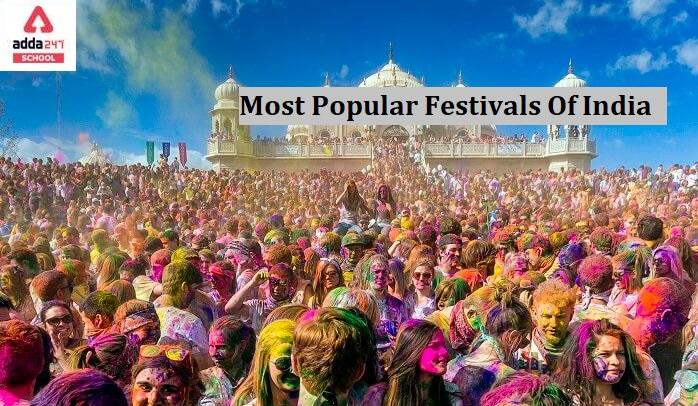








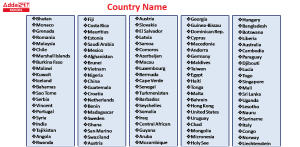 Country Name in Alphabetical Order A to ...
Country Name in Alphabetical Order A to ...
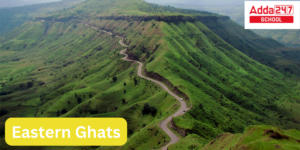 Eastern Ghats in India: Check Map, State...
Eastern Ghats in India: Check Map, State...
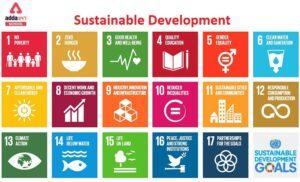 Sustainable Development Project Class 10...
Sustainable Development Project Class 10...









